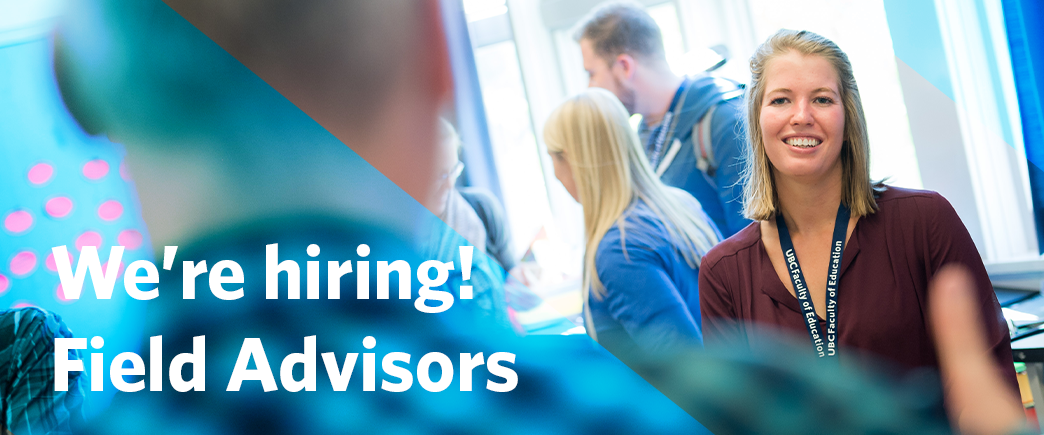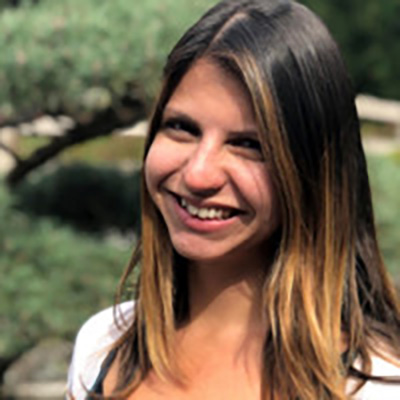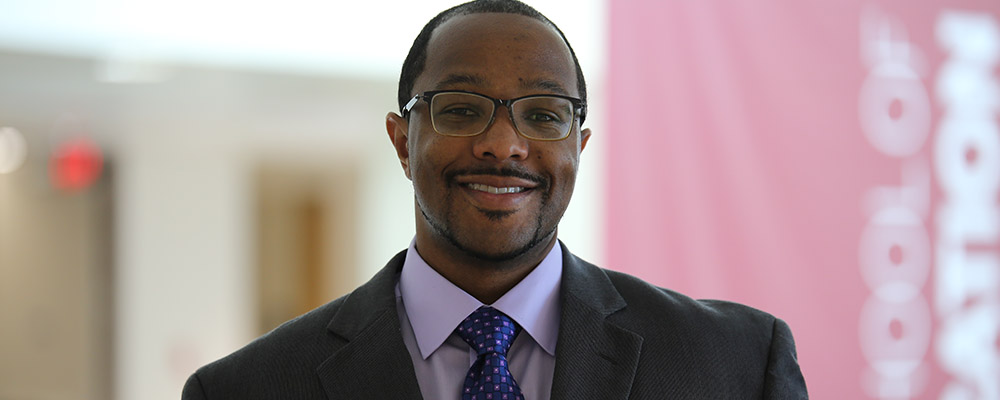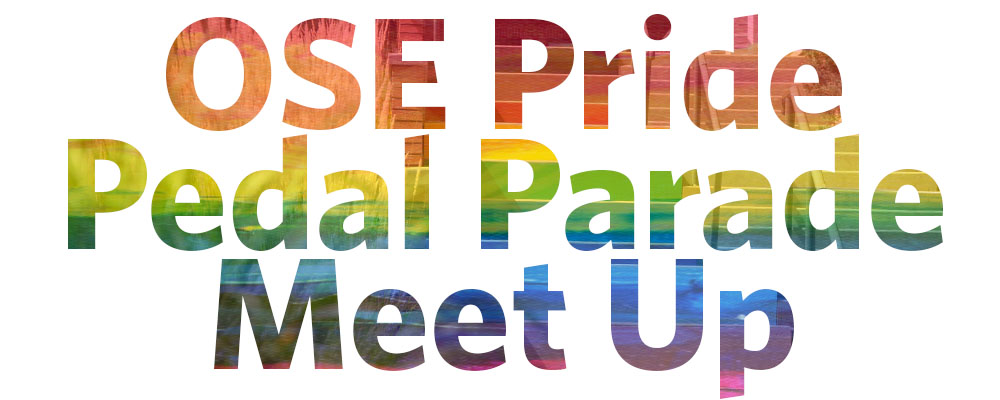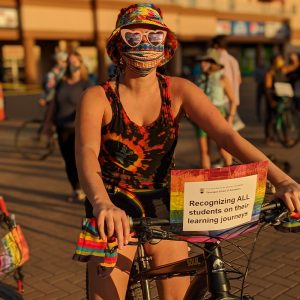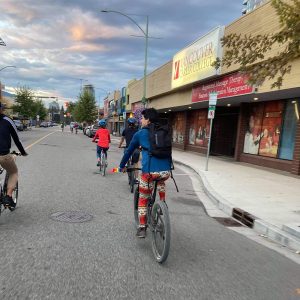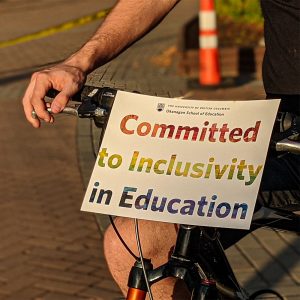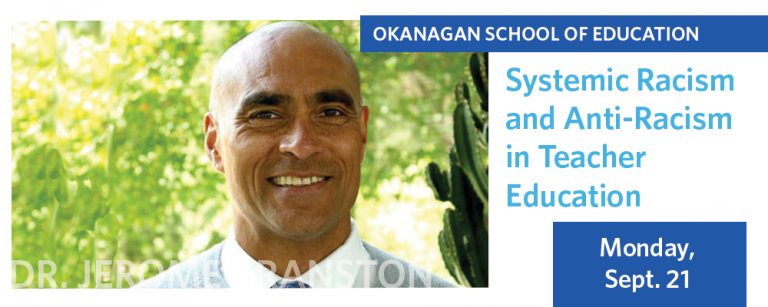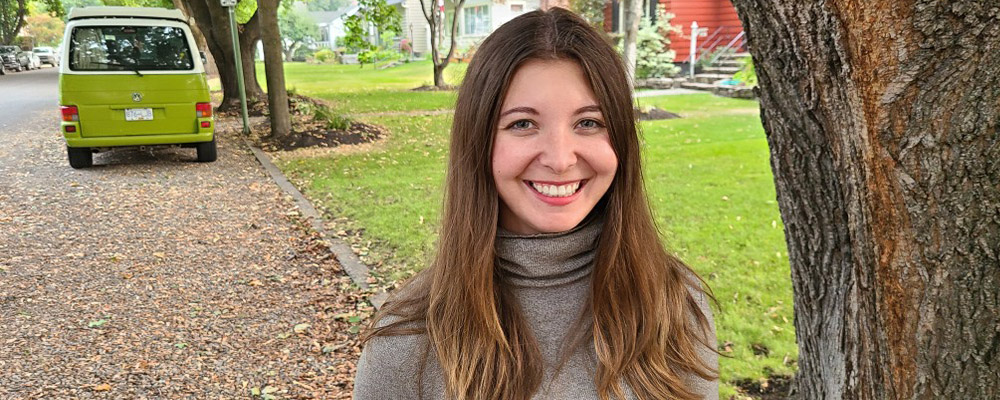
While this school year has had an unusual beginning, it did have an extra positive start for one Bachelor of Education teacher candidate.
Brittany Spankie is this year’s recipient of the Kelowna Kiwanis Legacy Major Entrance Award in Education – an award accompanied by $11,000. Established by the Central Okanagan Kiwanis Community Service Society, the award is presented to a student pursuing the Teaching Children (Kindergarten to Grade 5+) pathway.
Growing up in the small town of Lillooet, B.C., Brittany had immersed herself in volunteering at a young age. During her high-school years, she was an art leader for the local Nature Society, a peer tutor for special needs students, and a tutor for grade 8 and 9 students.
“Volunteering gave me so much enjoyment,” says Brittany. “When I was volunteering in high school, I hadn’t thought about being able to put these experiences on a resume. It was just seeing the enjoyment in other people that really meant something to me.”
It seems volunteering runs in the family as Brittany’s grandparents were both members of the Kelowna Kiwanis Club. Her grandmother, Elizabeth Shiels, was the president for two years and her grandfather, Gordon, was the vice president during that time. She has fond memories of spending her summers in Kelowna going to the Fat Cat Children’s Festival and other Kiwanis Club led events.
“My grandmother introduced the Kiwanis’ bike helmet safety program with the RCMP,” says Brittany, “I was very young at the time but I do remember receiving and keeping one of the special helmets they handed out.”
With most of her summer and winter breaks spent in the Okanagan visiting family, Britany had fallen in love with all that Kelowna had to offer. When it came time to apply to post-secondary schools there was only one place she wanted to go.
“I only applied to UBC Okanagan,” she says with a laugh. “It’s a good thing I got in!”
Brittany was accepted to the Faculty of Creative and Critical Studies, Bachelor of Visual Arts program, where she majored in sculpture and photography.
Her altruistic spirit continued while attending UBC Okanagan. She volunteered as a peer mentor for mature and diverse ability students, coordinated Art-on-the-Line and was a Create team orientation leader for three years.
“Growing up in such a small community, and knowing every single person there, coming to Kelowna I really wanted to make connections,” says Brittany. “I wanted people to know that there was someone there for them and for them to not feel alone. It’s part of the reason why I choose UBC Okanagan as well. It was a small close-knit community.”
Like many of us, Brittany’s career choices evolved and changed over the years.
“I had thought about being a professor, a marine biologist and many other careers,” says Brittany. “But I always enjoyed working with elementary school-aged children. Working with that age group, you’re helping to build their foundations and inspiring them to think freely and openly.”
It was a heartfelt note left in a book that cemented her decision to pursue the path towards becoming an educator.
“I graduated a year early by combining my grade 11 and 12 courses, and I had a Home Economics teacher who was so supportive. She gave me this notebook at my graduation and she had written a message that said ‘One day you’ll make a great teacher’,” says Brittany. “I was surprised because I hadn’t talked to her about becoming a teacher. I thought ‘wow, she really thinks I could be a teacher’ and having that support really made an impact.”
Congratulations Brittany!
